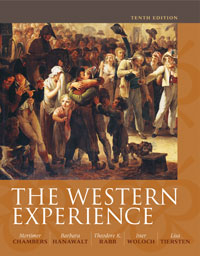1 A) insatiable quest for military glory. B) determination to defeat the enemies of Catholicism. C) goal of securing Spanish dominance of Europe. D) desire to restore the empire of his father, Charles V. E) opportune alliance with the English. 2 A) preventing an invasion of England by Spanish troops. B) enabling England to continue supporting the Dutch rebels. C) sparking rebellions in Portugal, Catalonia, Naples, and Sicily. D) sealing the fate of Spain's Catholic allies in the French Civil War. E) destroying more than half of the Spanish fleet. 3 A) a national struggle against a foreign overlord. B) a religious struggle between Protestants and Catholics. C) a victory in Europe by subjects resisting their monarch's authority. D) the religious war that ended with a treaty ensuring tolerance for both confessions. E) an opportunity for the English to project power onto the continent of Europe. 4 A) Philip II's desire to draw France into his dynastic empire. B) the struggle between the Protestants and the Catholics. C) the rivalry of the Guise and the Bourbon families. D) the reassertion of autonomy by the great nobles. E) a series of weak kings after the death of Henry II. 5 A) the principal battleground was the Holy Roman Empire. B) it was a renewed struggle between local Protestants and Catholics. C) the first decade of the war was a time of victory for the Catholics. D) the Swedes, Spanish, and French sought to keep the empire weak to enhance their own relative strength. E) the French king, who was Catholic, joined with the Protestants to undermine Habsburg power. 6 A) it ended the anarchy in Germany. B) it secured Spanish control of Holland. C) it formalized the fragmentation of Germany. D) it laid the groundwork for international relations for the next century. E) it meant that supranational goals like religious causes could no longer determine a state's foreign policy. 7 A) gunpowder. B) pikemen. C) sieges. D) discipline. E) better armor. 8 A) from around 40,000 to 60,000 men. B) from around 40,000 to 100,000 men. C) from around 40,000 to 200,000 men. D) from around 40,000 to 400,000 men. E) from around 40,000 to 125,000 men. 9 A) the size of the government bureaucracy needed to support the military. B) the amount of taxes needed to support the military. C) the amount of damage done by soldiers to the areas where they were stationed. D) armies were kept permanently ready. E) the first conscription decrees. 10 A) the Puritans. B) the gentry. C) common lawyers. D) the merchants. E) the nobility. 11 A) imprisonment without cause shown. B) the king's right to dissolve Parliament. C) taxation without Parliament's consent. D) martial law in peacetime. E) the billeting of troops among civilians. 12 A) royalists, who supported the king once the Grand Remonstrance was passed. B) Presbyterians – Puritans who wanted a centrally organized, Calvinist Church. C) Lutherans, who wanted to make the original Protestantism the state religion. D) Independents – Puritans who wanted each congregation to rule itself. E) Scots, who were allied with the Puritans and had a strictly organized Calvinist system. 13 A) the people had never supported revolution and turned on the Puritans once Cromwell was dead. B) the rebels were unable to create viable permanent structures. C) Parliament realized that it had acted illegally and wanted to restore the rule of law. D) royalists were able to infiltrate the parliamentary government and stage a bloodless coup. E) French Catholics invaded and placed the Stuarts back on the throne. 14 A) accelerating the sale of offices. B) reestablishing the authority of the king by buying off the nobility and the principal bureaucrats. C) establishing the notion that the government had primary responsibility for fostering economic development. D) leading the French intervention in the Holy Roman Empire that frustrated Habsburg designs. E) mollifying the nobility of the sword with places on his Council of Affairs. 15 A) reducing the independence of the traditional nobles. B) establishing the intendents as dominant officials in the provinces. C) destroying the Huguenots' independent military and political power. D) leading the French to final victory in the Thirty Years' War. E) acting as the head and representative of the "army of royal servants." 16 A) peasants, who objected to the increasingly onerous taxes. B) officials, who wanted to retain and expand their traditional prerogatives. C) merchants, who opposed the heavy hand of government regulation. D) nobles, who resisted the crowns' reduction of their traditional autonomy. E) Huguenots, who were still smarting from the abolition of the Edict of Nantes. 17 A) Spanish intervention. B) the lack of military skill among the lower classes. C) the perfidy of the nobles. D) the prestige of the king. E) the disillusionment and disunity of the rebels. 18 A) the wealth from America had been squandered on wars rather than invested in economic development. B) the bureaucracy was slow and dominated by Castilians, who were resented in other provinces. C) devastating plagues reduced the population by 40%, from 10 million to 6 million people. D) an increasing reliance on imported foods to feed its people. E) government action was overly centralized and agonizingly slow. 19 A) Portugal B) Catalonia C) Sicily D) Naples E) Denmark 20 A) the House of Orange, backed by the rural provinces, and the merchant oligarchy that controlled Holland. B) the House of Orange, backed by the merchant oligarchy in Holland, and the rural provinces. C) the Protestant northern provinces and the Catholic southern ones. D) the Protestant urban provinces and the Catholic rural ones. E) two factions within the House of Orange and merchant oligarchy.





